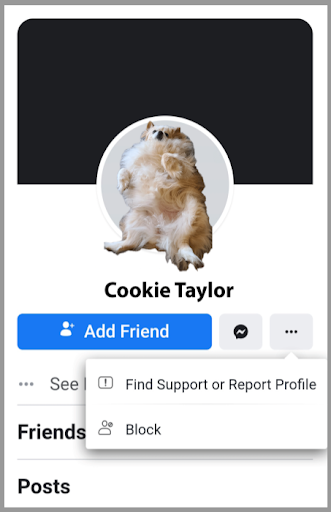
“I’ve been hacked! Don’t accept friend requests from me!” Most of us on social media see that warning periodically, and while not entirely accurate, it’s a sign of how prevalent fake friend requests are. These scams are rarely a sign of actual “hacking” – gaining unauthorized access to the account itself – but they do involve a little sleight of hand that takes advantage of overly-permissive permissions by users and social media companies to create a convincing scam.
Most social media platforms require that you have a minimum amount of information publicly viewable for folks to find you. Usually name, a profile picture, and maybe a cover photo; possibly even things like schools attended, hometown, or employers. Scam artists copy that public information to a new account that appears on the surface to be the same person. Once the fake account is created, it proceeds to send requests out, often to people who are already friends with the real person.
The scam counts on recipients to think, “Wow, I’m not already friends with my aunt?” or maybe “Hey, my old high-school pal wants to connect!” You see the name, the image, and click to accept the connection without realizing that what you’re seeing is a fake account impersonating someone you know.
An easy first step to protect yourself is to search for that person to see if they are already in your friends list, since this scam usually targets people who are already connected. Still not sure? Some other ways to check are:
- View the account without accepting the connection. Does it have few to no followers or friends? Are there no posts, no information to confirm the identity? Probably a fake. A real person connecting or reconnecting will probably have connections in common with you.
- When in doubt, try to find a way to message the person to find out if the friend request is legitimate.
Want to protect yourself from being spoofed and your friends from getting contacted by a fake you? That is harder. Most social media networks require you to have some information publicly viewable so that others can find you. If you don’t want to take that risk, it might be a good time to evaluate if a social media platform is the best way to stay connected online.
To secure yourself against these and other common threats to your privacy, follow the ITS Information Assurance advice on protecting your privacy.
